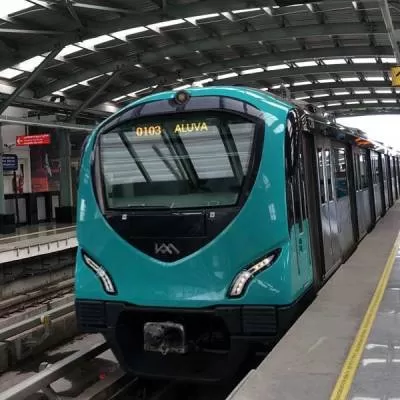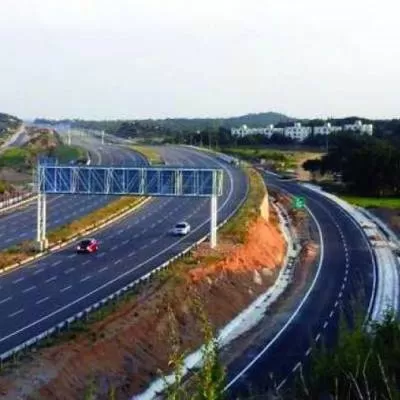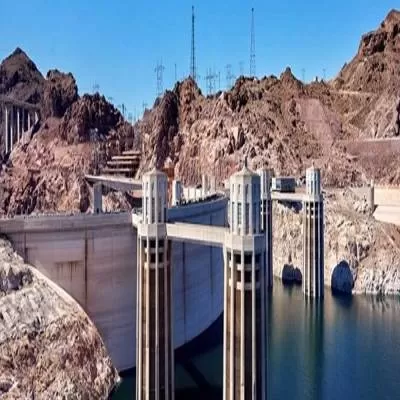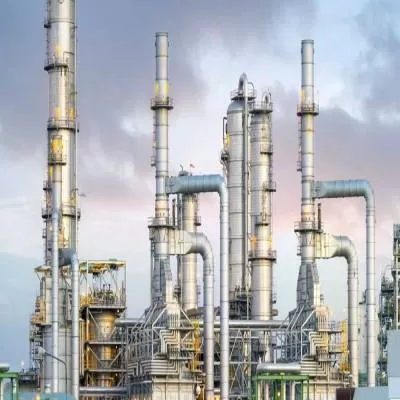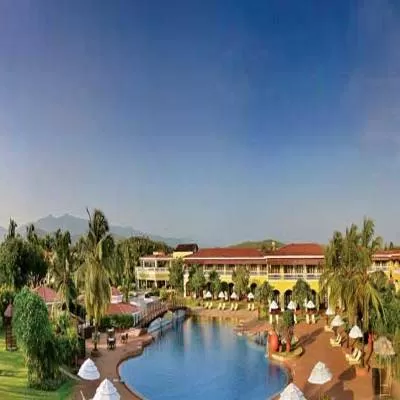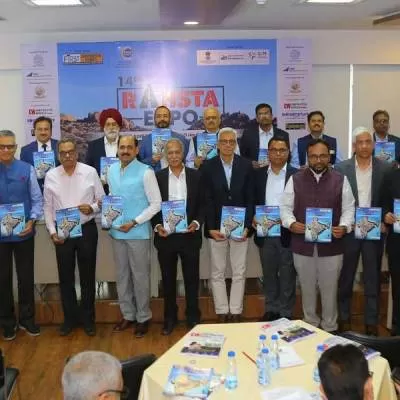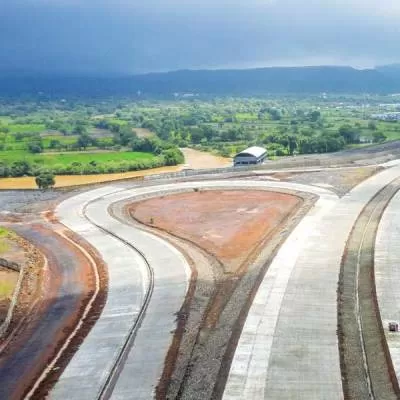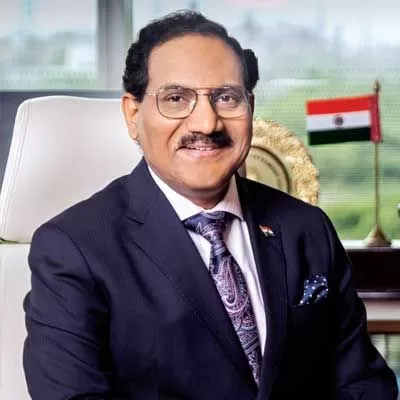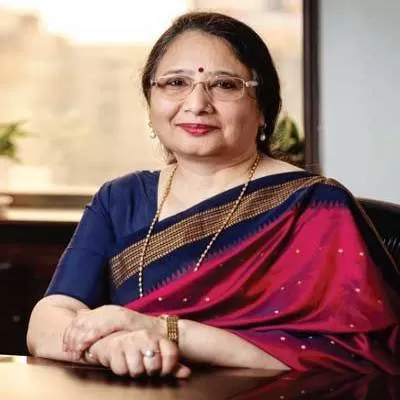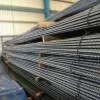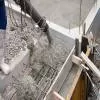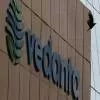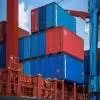- Home
- Infrastructure Energy
- POWER & RENEWABLE ENERGY
- We never stop innovating
We never stop innovating
Atul Punj, Chairman, Punj Lloyd Ltd
Winners never lose focus. There is no better example than Punj Lloyd Ltd. With an excellent track record for successful completion of projects within tight schedules, the $2.4 billion group continues to reiterate its belief and sworn commitment: to deliver the best in services and manufacturing to customers. Atul Punj, Chairman, Punj Lloyd Ltd, traces the company’s journey from its inception in conversation with Shubhangi Bidwe.
From modest beginnings as a pipeline company to a renowned EPC player to a multinational conglomerate with diverse interests, please take us through the high points of this journey.
Established in 1982, as a pipeline company, Punj Lloyd quickly expanded to tanks, terminals, refineries, offshore, power plants and civil infrastructure. A decade later, we widened our international operations to Indonesia, Malaysia, Singapore, Thailand, Abu Dhabi, Kuwait, Qatar, Yemen, Saudi Arabia, Kazakhstan, Libya and beyond.
Punj Lloyd got listed in 2006 and acquired an arm of SembCorp Industries of Singapore, called SembCorp Engineers and Constructors (later renamed Sembawang Engineers and Constructors), which is primarily into infrastructure and is active all across South East Asia. Along with Sembawang came UK based Simon Craves which has over 130 years of proven engineering experience across a broad spectrum of process sectors.
The Group later formed a dedicated engineering arm, PL Engineering, with over 750 qualified engineers providing design, engineering animation, analysis, manufacturing support and miscellaneous services to the oil and gas, power, defence and aerospace sectors.
In 2007, Punj Lloyd Upstream was incorporated to address the opportunities in the integrated drilling services market.
The group has recently formed a subsidiary, Punj Lloyd Delta Renewables to develop, engineer and execute renewable energy based projects throughout the world.
The group has also acquired a 33 per cent stake in Airworks India, one of the leading independent providers of aviation Maintenance, Repair and Overhaul (MRO) services in India and Aircraft Paint and Refinishing in the UK.
You have executed challenging projects in difficult weather and terrain like the construction of the world’s tallest reinforced earth wall at Sikkim Airport. Please throw light on these projects in terms of their magnitude and challenges encountered.
We have indeed executed some really challenging projects in extremely difficult terrains ranging from the dry deserts of Oman, to the swamps in Indonesia, the rocky mountains of Turkey and the rainforests of Indonesia. Some of our major triumphs include:
Baku-Tbilisi-Ceyhan pipeline project - Turkey: Almost 85 per cent of this pipeline was in the slopes, ESA, high elevation and rocky areas. For construction at such dangerous heights, we imparted special training to all our team members. Similarly, the equipment operating on these slopes was anchored from the top to prevent their fall down the slopes. Barbed fencing and retaining walls were raised to protect the earthwork from sliding.
One of the special achievements of our environmental team was the successful restoration of River Zamanti and its 600 m flood plain. We used bio-degradable materials like jute to protect the relocated plants from animals and birds. Construction for Zamanti included the installation of wooden log mats over a geo-textile layer to protect the topsoil, which was not removed in this location to gain extra bearing capacity and to minimise the direct impact of equipment movement on topsoil. Reinstatement of ROW included successful repositioning of topsoil, re-contouring the area, ensuring re-growth of the floral species, implementation of gabions for riverbank protection, reinstating the small water channels and tributaries, and achieving minimal construction scars.
East West Gas Pipeline - India: The laying of this 2.3 km pipeline in Bhivpuri Ghat involved use of the Skyline system - a special technique of pipelaying by an eco-efficient cable crane system, dividing the construction activities into two sections, namely upper and lower slopes.
The excavation was carried out by Austrian Menzi Muck Excavators.
Tapi River Crossing by Float & Sink technique: The Tapi river crossing was one of the critical crossings for the East West Pipeline project. Punj Lloyd executed the 750 m crossing by float and sink method. It involved design, engineering with anti-buoyancy calculations, design float spacing, from setup to removal of the floats, once the pipe is pulled into the water.
Oman Gas pipeline: During the laying of the Oman Gas pipeline, Punj Lloyd took extreme caution to protect 11 subterranean underground canals called ‘falaj’ in Oman. By using unique crossing methodology, Punj Lloyd successfully crossed 11 such ‘falajs’.
Sabah Sarawak Gas Pipeline - Malaysia: Punj Lloyd mobilised specialised equipment, trailers and sledges for pipe transportation, stringing and welding in the ROW. Heavy duty winches, walking spider excavators and a ropeway crane system were mobilised for the installation of the pipeline on the steep slopes. Air crane helicopters were also used for airlifting and transporting pipes in inaccessible areas.
Sikkim Airport Project - India: Sikkim’s first Greenfield project at a height of 1,404 m above mean sea level involved excavation at a depth of 100 m and earth filling of slopes that are 80 m in height, stabilised with Geogrid Reinforced Retaining Wall. A large volume of earthwork involved blasting in hard rock apart from excavation in soft rock and soil. To protect the environment, excavated slopes at a height of 100 m were planted with local species of flora.
Recently, Punj Lloyd bagged two orders in the oil and gas sectors in Indonesia and Oman. Please share details of these projects?
Punj Lloyd, in Oman, has been awarded a Rs 323 crore project by Petroleum Company Occidental Mukhaizna for engineering, procurement and construction of a new water treatment plant. The scope of work also includes upgradation of the central processing facilities. The project will be executed over a period of 27 months.
In Indonesia, Punj Lloyd has bagged a project worth Rs 271 crore from Pertamina. The scope of work for the contract includes engineering, procurement, construction, installation and commissioning (EPCIC) of three well-head platforms and laying three segments of 18.6 km of offshore gas pipeline, along with subsea ‘wye’ installation in existing pipeline without any shut down.
Recently, you’ve formed a JV with PL Engineering to offer engineering services to the aerospace sector. You also have a solar power plant coming up in Jodhpur. Tell us about these and other interesting projects in the pipeline.
A Punj Lloyd group company, PL Engineering has formed a JV with GECI India, a subsidiary of GECI International. This will combine the strengths of Indian resources and skills in design and engineering with global aerospace technology, knowhow and experience.
Meanwhile, the solar power plant project in Jodhpur underlines the commitment of the company in developing renewable energy infrastructure in India. We have signed a 25 year power purchase agreement with NTPC Vidhyut Vyapar Nigam Ltd for sale of power from a 5 MW PV Solar Power plant at Jodhpur. The timely execution of this solar grid connect system will not only meet the need of efficient generation and distribution of solar power, but will also contribute to the global mandate for action on climate change.
Please elaborate on the safety standards adopted by the company?
Safety at Punj Lloyd involves a rigorous implementation of Health, Safety and Environment (HSE) measures. Continuous health and safety surveillance is reinforced with safety audits carried out at regular intervals. Regular training including safety alerts, mock drills and handling near-miss incidents, is carried out to update knowledge, reinforce familiarity and reduce response time. Monthly safety awards at site are awarded for best safety practices to motivate staff and enhance involvement and awareness. Safety promotion activities are high on our agenda, including the celebration of National Safety Day, AIDS Awareness Day and Environment Day at all sites.
Some important safety measures that the company has adopted are listed below:
- Automatic Safe Load Indicator (ASLI) has been installed on all Punj Lloyd owned mobile cranes.
- To ensure safety for workers on high scaffoldings, appropriate equipment and full body harness was made mandatory. During tankage construction, use of specified equipment such as ‘gondolas’ (as required by Building and Construction Workers Rules) has been implemented.
As recognition for its efforts in safety, Punj Lloyd was awarded the Greentech Gold Award in Safety Management for the Construction Sector in 2010 and four preceding years.
Any new and upcoming technologies used in any of your projects that you would like to talk about?
Punj Lloyd is one of the few Indian companies to own a large fleet of offshore installation barges - pipe-laying barge Kuber is capable of laying pipelines in water depths of 150 m and can accommodate 290 personnel. Kuber is the only Indian flag pipelay vessel, 100 per cent owned and operated by Punj Lloyd. Pipelay barge Mahesh 1, with a capacity to lay pipelines upto 44” dia; derrick barge Madhwa with a crane capacities of 650 tonne and accommodation for 164 people and a push pull barge Ganpati for pipelaying in shore approaches. We own over 170 pipelayers ranging from capacity of 20 tonne to 100 tonne The pipelaying equipment ranges from boring machines, trenchers, horizontal drilling rigs, excavators, dozers, pipe benders, automatic welding machines and other specialised equipment required to lay 56” dia pipe-lines. Based on our equipment potential, we can simultaneously manage 20 spreads of pipeline equipment, hand-ling up to 56” dia pipelines.We also own the largest fleet of Maxi HDD rigs in India, including three 250 T rigs and one 400 T rig.
Punj Lloyd holds ISO 9001:2008; ISO 14001:2004 and OHSAS 18001:2007 certifications. To what extent does quality matter to the company?
We have integrated the performance standards of the International Finance Corporation (IFC) into our HSEQ management system. This helps us to avoid, reduce, mitigate or compensate for the impact on people and the environment and to improve conditions where appropriate. Our efforts in HSEQ and this humanitarian sphere are widely acknowledged by clients, government agencies, non-governmental organisations (NGOs), industry and business authorities. Clients like Tengizchevroil/PFD Inter-national, Parsons Fluor Daniel in Kazak-hstan, and Petroleum Development Oman have conferred honours for our high standards of HSEQ.
What is Punj Lloyd’s contribution in reducing global carbon footprint?
Punj Lloyd is implementing an environment management system and is certified for ISO 14001:2004. Our initiatives include pollution under control checking of vehicles and monitoring performance, testing and certification of construction equipment and vehicles before being put to use and setting up of fuel consumption standards of construction equipment, monitoring its performance and taking corrective actions for optimising fuel consumption.
What is the turnaround strategy for Punj Lloyd? What is your vision for the future?
With our reputation in EPC established, we partner with the world’s best in pursuit of new opportunities in the global marketplace. Through strategic acquisitions, our portfolio includes engineering, petrochemicals, renewables, high-spec buildings and infrastructure like airports, jetties, mass rapid and light rail transit systems, luxury hotels and resorts and offshore. The diversity of our partners has increased the range of our expertise - niche engineering, oil drilling, aviation, insulation services for varied sectors, while making significant inroads into the fields of defence and nuclear energy. With our global outlook and our international partners, we can take on anything, anywhere in the world. We never stop innovating. We keep pushing boundaries, expanding horizons. Building projects that are ever bigger and bolder, more challenging and complex.
Fact sheet
Year of establishment: 1982
Centres of operation: Iran, Qatar, Saudi Arabia, Oman, Iraq, Libya, Yemen, Bahrain, Kazakhstan, Turkmenistan, China, Malaysia, Vietnam, Indonesia, Thailand, Hong Kong, UK, UAE, India, Singapore
Top management: Atul Punj, Chairman; Luv Chhabra, Director - Corporate Affairs; PK Gupta, Director
No. of employees: Approx 23,000
Group turnover: Rs 10,720 crore as on FY ended March 31, 2010
Landmarks:
• Heera redevelopment offshore platform, India
• Baku-Tbilisi-Ceyhan crude oil pipeline project, Turkey
• Hydroer unit and hydrogen generation unit, Haldia Refinery, India
• World’s largest wheat-based ethanol plant in the UK
• Marina Bay Sands Integrated Resorts, North Podium Hotels, beach villas, oceanarium and water theme park for Resorts World Sentosa, Singapore
• Medanta, The Medicity, India
• Design and construction of elevated viaduct for Delhi Metro Rail Corporation, India
• Construction of eight stations and viaduct, Bangalore Metro Rail Corporation, India
• Upgrade of the Belgaum-Maharashtra Border Highway
• Projects for the Golden Quadrilateral including East-West and North-South Corridors, India
• All 3 LNG terminals in India: Dabhol, Hazira, Dahej
• Jurong Bulk Liquid Product Terminal, Horizon Terminals Pte Ltd, Singapore
• Changi Airport, Singapore
• Paya Lebar Tunnel
- Construction
- Update
- Portal
- Magazine
- CW-India
- April
- 2011
- India
- Atul Punj
- Punj Lloyd Ltd
- pipeline
- terminals
- refineries
- Indonesia
- Malaysia
- Singapore
- SembCorp Industries
- Simon Craves
- UK
- PL Engineering
- Punj Lloyd Upstream
- renewable energy
- Punj Lloyd Delta Renewables
- Airworks India
- MRO
- Aircraft Paint
- Turkey
- Baku-Tbilisi-Ceyhan pipeline project
- River Zamanti
- Oman Gas pipeline
- Sikkim Airport Project
- Petroleum Company Occidental Mukhaizna
- EPCIC
- GECI International
- NTPC
- Jodhpur
- Solar Power plant
- National Safety Day
- AIDS Awareness Day
- HSE
- IFC
- HSEQ
- EPC
- environment management system
- Greentech Gold Award
- Safety Management
Atul Punj, Chairman, Punj Lloyd Ltd Winners never lose focus. There is no better example than Punj Lloyd Ltd. With an excellent track record for successful completion of projects within tight schedules, the $2.4 billion group continues to reiterate its belief and sworn commitment: to deliver the best in services and manufacturing to customers. Atul Punj, Chairman, Punj Lloyd Ltd, traces the company’s journey from its inception in conversation with Shubhangi Bidwe. From modest beginnings as a pipeline company to a renowned EPC player to a multinational conglomerate with diverse interests, please take us through the high points of this journey.Established in 1982, as a pipeline company, Punj Lloyd quickly expanded to tanks, terminals, refineries, offshore, power plants and civil infrastructure. A decade later, we widened our international operations to Indonesia, Malaysia, Singapore, Thailand, Abu Dhabi, Kuwait, Qatar, Yemen, Saudi Arabia, Kazakhstan, Libya and beyond. Punj Lloyd got listed in 2006 and acquired an arm of SembCorp Industries of Singapore, called SembCorp Engineers and Constructors (later renamed Sembawang Engineers and Constructors), which is primarily into infrastructure and is active all across South East Asia. Along with Sembawang came UK based Simon Craves which has over 130 years of proven engineering experience across a broad spectrum of process sectors. The Group later formed a dedicated engineering arm, PL Engineering, with over 750 qualified engineers providing design, engineering animation, analysis, manufacturing support and miscellaneous services to the oil and gas, power, defence and aerospace sectors. In 2007, Punj Lloyd Upstream was incorporated to address the opportunities in the integrated drilling services market. The group has recently formed a subsidiary, Punj Lloyd Delta Renewables to develop, engineer and execute renewable energy based projects throughout the world. The group has also acquired a 33 per cent stake in Airworks India, one of the leading independent providers of aviation Maintenance, Repair and Overhaul (MRO) services in India and Aircraft Paint and Refinishing in the UK. You have executed challenging projects in difficult weather and terrain like the construction of the world’s tallest reinforced earth wall at Sikkim Airport. Please throw light on these projects in terms of their magnitude and challenges encountered.We have indeed executed some really challenging projects in extremely difficult terrains ranging from the dry deserts of Oman, to the swamps in Indonesia, the rocky mountains of Turkey and the rainforests of Indonesia. Some of our major triumphs include: Baku-Tbilisi-Ceyhan pipeline project - Turkey: Almost 85 per cent of this pipeline was in the slopes, ESA, high elevation and rocky areas. For construction at such dangerous heights, we imparted special training to all our team members. Similarly, the equipment operating on these slopes was anchored from the top to prevent their fall down the slopes. Barbed fencing and retaining walls were raised to protect the earthwork from sliding. One of the special achievements of our environmental team was the successful restoration of River Zamanti and its 600 m flood plain. We used bio-degradable materials like jute to protect the relocated plants from animals and birds. Construction for Zamanti included the installation of wooden log mats over a geo-textile layer to protect the topsoil, which was not removed in this location to gain extra bearing capacity and to minimise the direct impact of equipment movement on topsoil. Reinstatement of ROW included successful repositioning of topsoil, re-contouring the area, ensuring re-growth of the floral species, implementation of gabions for riverbank protection, reinstating the small water channels and tributaries, and achieving minimal construction scars. East West Gas Pipeline - India: The laying of this 2.3 km pipeline in Bhivpuri Ghat involved use of the Skyline system - a special technique of pipelaying by an eco-efficient cable crane system, dividing the construction activities into two sections, namely upper and lower slopes. The excavation was carried out by Austrian Menzi Muck Excavators. Tapi River Crossing by Float & Sink technique: The Tapi river crossing was one of the critical crossings for the East West Pipeline project. Punj Lloyd executed the 750 m crossing by float and sink method. It involved design, engineering with anti-buoyancy calculations, design float spacing, from setup to removal of the floats, once the pipe is pulled into the water. Oman Gas pipeline: During the laying of the Oman Gas pipeline, Punj Lloyd took extreme caution to protect 11 subterranean underground canals called ‘falaj’ in Oman. By using unique crossing methodology, Punj Lloyd successfully crossed 11 such ‘falajs’. Sabah Sarawak Gas Pipeline - Malaysia: Punj Lloyd mobilised specialised equipment, trailers and sledges for pipe transportation, stringing and welding in the ROW. Heavy duty winches, walking spider excavators and a ropeway crane system were mobilised for the installation of the pipeline on the steep slopes. Air crane helicopters were also used for airlifting and transporting pipes in inaccessible areas. Sikkim Airport Project - India: Sikkim’s first Greenfield project at a height of 1,404 m above mean sea level involved excavation at a depth of 100 m and earth filling of slopes that are 80 m in height, stabilised with Geogrid Reinforced Retaining Wall. A large volume of earthwork involved blasting in hard rock apart from excavation in soft rock and soil. To protect the environment, excavated slopes at a height of 100 m were planted with local species of flora. Recently, Punj Lloyd bagged two orders in the oil and gas sectors in Indonesia and Oman. Please share details of these projects?Punj Lloyd, in Oman, has been awarded a Rs 323 crore project by Petroleum Company Occidental Mukhaizna for engineering, procurement and construction of a new water treatment plant. The scope of work also includes upgradation of the central processing facilities. The project will be executed over a period of 27 months. In Indonesia, Punj Lloyd has bagged a project worth Rs 271 crore from Pertamina. The scope of work for the contract includes engineering, procurement, construction, installation and commissioning (EPCIC) of three well-head platforms and laying three segments of 18.6 km of offshore gas pipeline, along with subsea ‘wye’ installation in existing pipeline without any shut down. Recently, you’ve formed a JV with PL Engineering to offer engineering services to the aerospace sector. You also have a solar power plant coming up in Jodhpur. Tell us about these and other interesting projects in the pipeline.A Punj Lloyd group company, PL Engineering has formed a JV with GECI India, a subsidiary of GECI International. This will combine the strengths of Indian resources and skills in design and engineering with global aerospace technology, knowhow and experience. Meanwhile, the solar power plant project in Jodhpur underlines the commitment of the company in developing renewable energy infrastructure in India. We have signed a 25 year power purchase agreement with NTPC Vidhyut Vyapar Nigam Ltd for sale of power from a 5 MW PV Solar Power plant at Jodhpur. The timely execution of this solar grid connect system will not only meet the need of efficient generation and distribution of solar power, but will also contribute to the global mandate for action on climate change. Please elaborate on the safety standards adopted by the company?Safety at Punj Lloyd involves a rigorous implementation of Health, Safety and Environment (HSE) measures. Continuous health and safety surveillance is reinforced with safety audits carried out at regular intervals. Regular training including safety alerts, mock drills and handling near-miss incidents, is carried out to update knowledge, reinforce familiarity and reduce response time. Monthly safety awards at site are awarded for best safety practices to motivate staff and enhance involvement and awareness. Safety promotion activities are high on our agenda, including the celebration of National Safety Day, AIDS Awareness Day and Environment Day at all sites. Some important safety measures that the company has adopted are listed below: Automatic Safe Load Indicator (ASLI) has been installed on all Punj Lloyd owned mobile cranes. To ensure safety for workers on high scaffoldings, appropriate equipment and full body harness was made mandatory. During tankage construction, use of specified equipment such as ‘gondolas’ (as required by Building and Construction Workers Rules) has been implemented. As recognition for its efforts in safety, Punj Lloyd was awarded the Greentech Gold Award in Safety Management for the Construction Sector in 2010 and four preceding years. Any new and upcoming technologies used in any of your projects that you would like to talk about?Punj Lloyd is one of the few Indian companies to own a large fleet of offshore installation barges - pipe-laying barge Kuber is capable of laying pipelines in water depths of 150 m and can accommodate 290 personnel. Kuber is the only Indian flag pipelay vessel, 100 per cent owned and operated by Punj Lloyd. Pipelay barge Mahesh 1, with a capacity to lay pipelines upto 44” dia; derrick barge Madhwa with a crane capacities of 650 tonne and accommodation for 164 people and a push pull barge Ganpati for pipelaying in shore approaches. We own over 170 pipelayers ranging from capacity of 20 tonne to 100 tonne The pipelaying equipment ranges from boring machines, trenchers, horizontal drilling rigs, excavators, dozers, pipe benders, automatic welding machines and other specialised equipment required to lay 56” dia pipe-lines. Based on our equipment potential, we can simultaneously manage 20 spreads of pipeline equipment, hand-ling up to 56” dia pipelines.We also own the largest fleet of Maxi HDD rigs in India, including three 250 T rigs and one 400 T rig. Punj Lloyd holds ISO 9001:2008; ISO 14001:2004 and OHSAS 18001:2007 certifications. To what extent does quality matter to the company?We have integrated the performance standards of the International Finance Corporation (IFC) into our HSEQ management system. This helps us to avoid, reduce, mitigate or compensate for the impact on people and the environment and to improve conditions where appropriate. Our efforts in HSEQ and this humanitarian sphere are widely acknowledged by clients, government agencies, non-governmental organisations (NGOs), industry and business authorities. Clients like Tengizchevroil/PFD Inter-national, Parsons Fluor Daniel in Kazak-hstan, and Petroleum Development Oman have conferred honours for our high standards of HSEQ. What is Punj Lloyd’s contribution in reducing global carbon footprint? Punj Lloyd is implementing an environment management system and is certified for ISO 14001:2004. Our initiatives include pollution under control checking of vehicles and monitoring performance, testing and certification of construction equipment and vehicles before being put to use and setting up of fuel consumption standards of construction equipment, monitoring its performance and taking corrective actions for optimising fuel consumption. What is the turnaround strategy for Punj Lloyd? What is your vision for the future? With our reputation in EPC established, we partner with the world’s best in pursuit of new opportunities in the global marketplace. Through strategic acquisitions, our portfolio includes engineering, petrochemicals, renewables, high-spec buildings and infrastructure like airports, jetties, mass rapid and light rail transit systems, luxury hotels and resorts and offshore. The diversity of our partners has increased the range of our expertise - niche engineering, oil drilling, aviation, insulation services for varied sectors, while making significant inroads into the fields of defence and nuclear energy. With our global outlook and our international partners, we can take on anything, anywhere in the world. We never stop innovating. We keep pushing boundaries, expanding horizons. Building projects that are ever bigger and bolder, more challenging and complex. Fact sheet Year of establishment: 1982Centres of operation: Iran, Qatar, Saudi Arabia, Oman, Iraq, Libya, Yemen, Bahrain, Kazakhstan, Turkmenistan, China, Malaysia, Vietnam, Indonesia, Thailand, Hong Kong, UK, UAE, India, Singapore Top management: Atul Punj, Chairman; Luv Chhabra, Director - Corporate Affairs; PK Gupta, Director No. of employees: Approx 23,000Group turnover: Rs 10,720 crore as on FY ended March 31, 2010 Landmarks: • Heera redevelopment offshore platform, India• Baku-Tbilisi-Ceyhan crude oil pipeline project, Turkey• Hydroer unit and hydrogen generation unit, Haldia Refinery, India• World’s largest wheat-based ethanol plant in the UK• Marina Bay Sands Integrated Resorts, North Podium Hotels, beach villas, oceanarium and water theme park for Resorts World Sentosa, Singapore• Medanta, The Medicity, India• Design and construction of elevated viaduct for Delhi Metro Rail Corporation, India• Construction of eight stations and viaduct, Bangalore Metro Rail Corporation, India• Upgrade of the Belgaum-Maharashtra Border Highway • Projects for the Golden Quadrilateral including East-West and North-South Corridors, India• All 3 LNG terminals in India: Dabhol, Hazira, Dahej• Jurong Bulk Liquid Product Terminal, Horizon Terminals Pte Ltd, Singapore• Changi Airport, Singapore• Paya Lebar Tunnel


